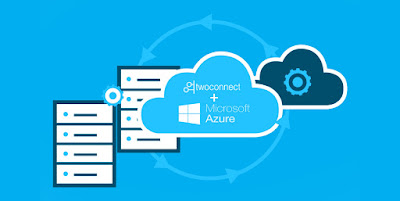Experts for BizTalk to Azure Migration
DMS Group knows that Azure has put consistent emphasis on its goal of bringing parity between a datacenter and cloud, a prospect which is easier said than done, particularly since infrastructure services did not come until several years later. First, underscored hybrid clouds as a way of getting there from the start with BizTalk to Azure Migration, a tool that enables connectivity based endpoints towards public cloud. The firm took a further step for its capability to bridge datacenter workloads to Azure.
 |
| BizTalk to Azure Migration |
An equally vital new capability brought to BizTalk to Azure Migration is support a commercial runtime environment of open source container platform has announced at Ignite that would be included for free in Windows Server. This makes it extremely easy for developers as well as IT admins to leverage container-based deployments with the use of it. The Azure big data tools draw enterprise to the public cloud. With the now-available SQL Data Warehouse big data service, it aims to attract customers’ on-premises data management to the cloud and to keep pace. The company continues fleshing out its big data analytics tools to draw more traditional customers to its public cloud. In a lot of ways, the Azure big data service leapfrogs what frontrunner Amazon offers, filling in final piece of analytics platform and ecosystem to help Information Technology stores to shift data management to the cloud.
Cloud computing is computer capability that is delivered as utility via Internet protocols and standards. This opens up the possibilities for public cloud and private cloud concepts. Public cloud, as the name implies, is available for anyone with a credit card. Private cloud on the other hand is meant the exclusive use of a business or business consortium as identified by the mission statement of private cloud. Azure, is some examples of public clouds. Any private data center that is run by a huge enterprise could be called BizTalk to Azure Migration if it has the advantage of a unified resource model that is enabled by wider virtualization, which treats storage, compute and networking as homogenous resource pool and take advantage of processes that are highly automated to operate the system.
The virtual architecture of BizTalk to Azure Migration achieves scalability through massive distributing the control panel and data plane of the network. It has numerous federated controllers, each one dedicated to particular apps, network functions and services. The data plane and the all Layer series and policies are implemented across each hypervisor host in Azure data centers. The virtual control plane includes federated, specialized controllers. There are controllers by app and are federated. The approach to the forwarding plane in the Windows Azure network was inspired. The idea is match-action tables. A controller programs the tables. There are tables for virtual networks or network address translation, load balances, access control lists. There are hundreds of features and are implemented in ways that could not be done if all was cooked into hardware as Azure’s virtual cloud load-balancing services. So, if you are looking for BizTalk to Azure Migration service then contact DMS Group.


Comments
Post a Comment